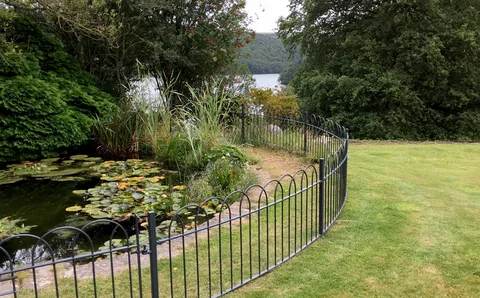When it comes to fencing your property, one of the most important decisions you’ll make is selecting the right Y post size and material. The Y post serves as the backbone of your fence, providing the necessary support to keep your fencing secure and durable over time. In this article, we will guide you through how to choose the right Y post size and material for your property, ensuring your fence stands strong against the elements and meets your specific needs.
Understanding the Importance of Y Posts
Y posts are a type of metal fence post commonly used for agricultural, residential, and commercial fencing projects. They are called “Y posts” because of their distinctive Y-shaped cross-section, which offers excellent strength and stability. Choosing the correct size and material is essential to withstand the weight of the fence, resist weather conditions, and provide long-term durability.
How to Choose the Right Y Post Size
The size of the Y post you select depends largely on the type of fencing you plan to install and the conditions of your property. Here are the key factors to consider:
1. Fence Type and Weight
Heavier fencing materials, such as woven wire or chain link, require thicker and larger Y posts for adequate support. Lighter fencing options like electric or temporary fencing may only need smaller-sized posts.
2. Soil Conditions
Soil type affects the post’s stability. Softer or sandy soils may require larger diameter posts to ensure the fence remains upright and secure, whereas firmer soil may allow for smaller posts.
3. Fence Height
For taller fences, larger and sturdier Y posts are recommended to prevent bending or leaning under pressure from wind or livestock.
Typical Y Post Sizes
Common Y post sizes range from 5 to 8 feet in length, with thicknesses from 11 gauge (thicker) to 14 gauge (thinner). For most residential properties, a 6-foot post with an 11 or 12 gauge thickness offers a good balance between durability and cost.
Choosing the Right Material for Y Posts
Y posts are typically made from steel or other metal alloys, and sometimes come with different coatings to enhance their lifespan.
1. Galvanized Steel
Galvanized steel Y posts are coated with zinc to prevent rust and corrosion. This makes them ideal for areas with high moisture or frequent rain.
2. Painted or Powder-Coated Steel
Some Y posts come with painted or powder-coated finishes for additional protection and aesthetic appeal. These coatings can last longer but might require maintenance over time.
3. Uncoated Steel
Uncoated steel posts are less expensive but prone to rust. They might be suitable for short-term fencing needs or dry climates.
Final Tips on How to Choose the Right Y Post Size and Material for Your Property
- Assess your property’s needs: Take into account fence height, soil type, and local weather.
- Consult with fencing experts: Getting professional advice can help you avoid costly mistakes.
- Consider longevity and maintenance: Investing in higher quality material may save money in the long run.
By carefully evaluating these factors, you will be well-equipped to choose the right Y post size and material for your property, ensuring a strong, lasting fence that meets your needs.



